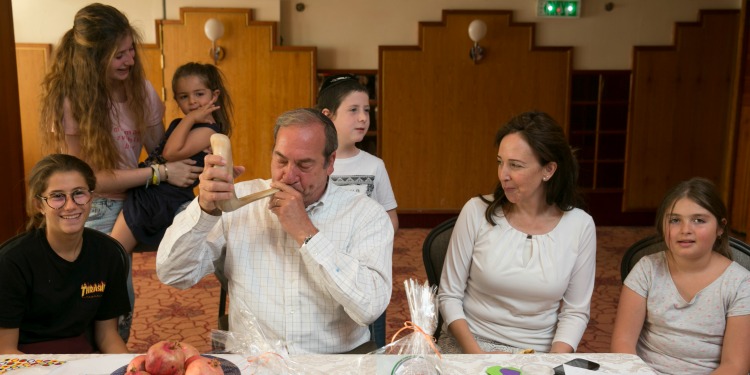A New Love for the New Year
The Fellowship | September 14, 2017

Rosh Hashanah, the Jewish New Year, is celebrated in a very different fashion than the New Year’s celebrations you see on Times Square. But while watching the ball drop at Times Square on New Year’s Eve many years ago, I first appreciated how my family celebrated Rosh Hashanah.
My awkward teenage self found Judaism – and Jews, for that matter – not very cool. I would sneak out of my house Friday night after the Sabbath meal to hang out with my non-Jewish friends who weren’t forbidden by biblical law from turning on lights, and even worse, turning on the television.
As a kid, I envied non-Jews. I even envied their names – like Johnny, Tom, Bill, and Brady – which were so easy to pronounce. My name is Amichai, but I had to shorten it to Ami so people could pronounce it without catching a coughing fit.
And as a kid, I liked parts of Rosh Hashanah, like the lavish festive meals. But parts of it I found too long and dragged out, like the prayers. While I never fully appreciated the holiday, I never despised it, either.
But everything changed for me on New Year’s Eve when I was fifteen. Filled with excitement, I hopped a train to New York City with a couple of friends on the last night of December. I had watched the ball drop on TV many times before, but I was never part of the celebration on the streets of New York City.
As I got off the train and headed toward the glaring lights of Times Square, I felt out of place, out of touch. People were in a festive mood, but it was a much different festivity than the Jewish New Year I celebrated in synagogue. There was a lot of ruckus and not much reverence. Police were everywhere, and I thanked God for that, for there were more than a few drunken, rowdy groups of people who seemed to be looking for a fight.
When the ball dropped, I was surrounded by what seemed to me – compared to what I was used to in synagogue when the shofar is blown and everyone stands intently and silently – as decadence. As I looked around, I noticed some people were making out, some were just screaming at the top of their lungs, while others cursed and shouted loudly.
I left Times Square feeling proud of my heritage, and fortunate to be part of a chain that links back thousands of years, with moral laws, traditions, and guidelines on how to celebrate our holidays and live our lives.
I was only a teenager, but I suddenly understood the importance of sanctity of holidays, the sanctity of spaces such as the synagogue or the home, and the reverence we feel as the sound of the shofar shakes our souls every Rosh Hashanah, reminding us that God is a living God and a present God.
And now, all these years later, my prayer is that I will be able to pass on this same sanctity and reverence and pride of the biblical holidays to my own children.
-Ami Farkas
